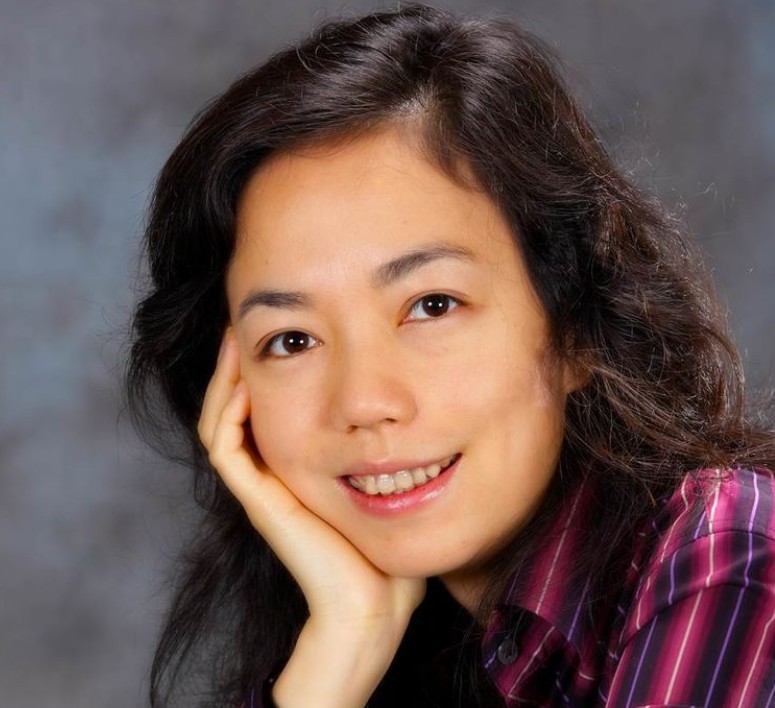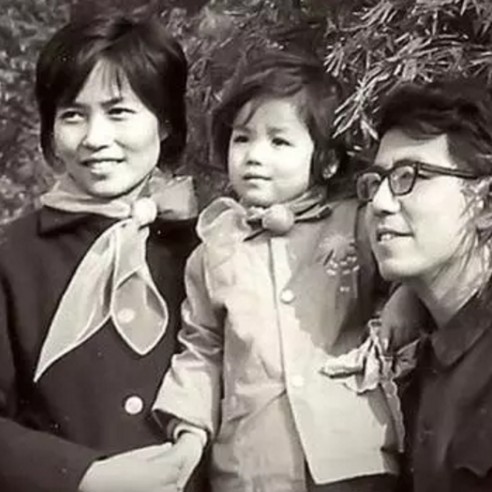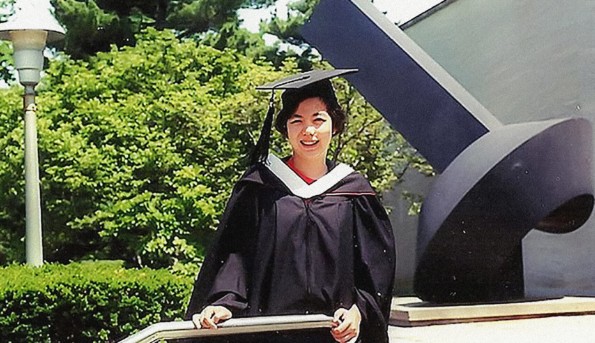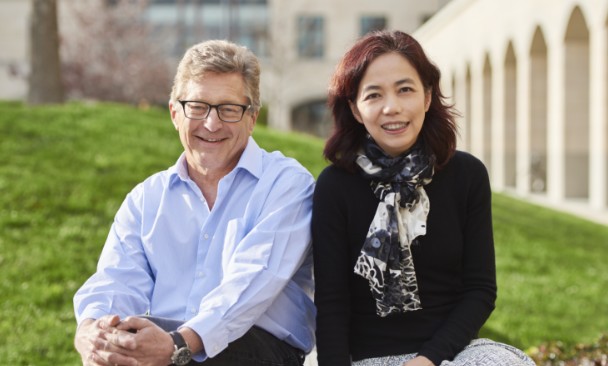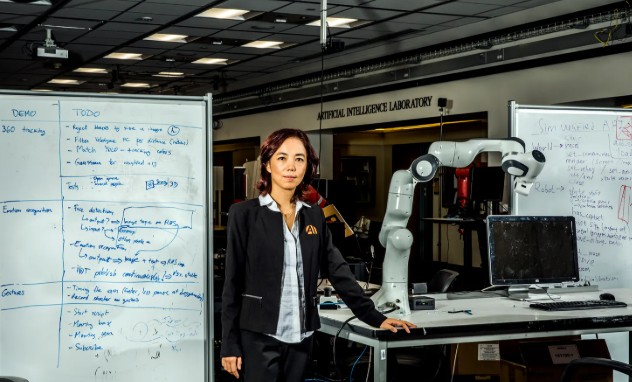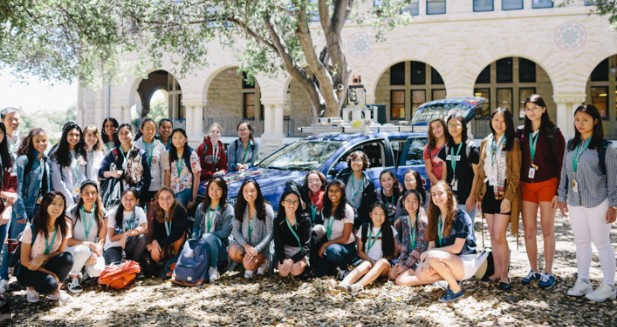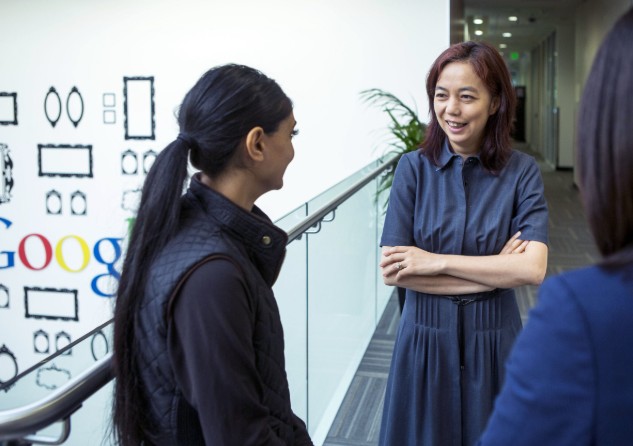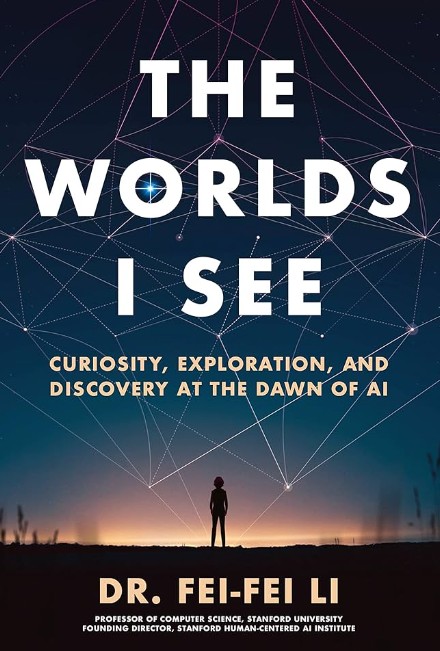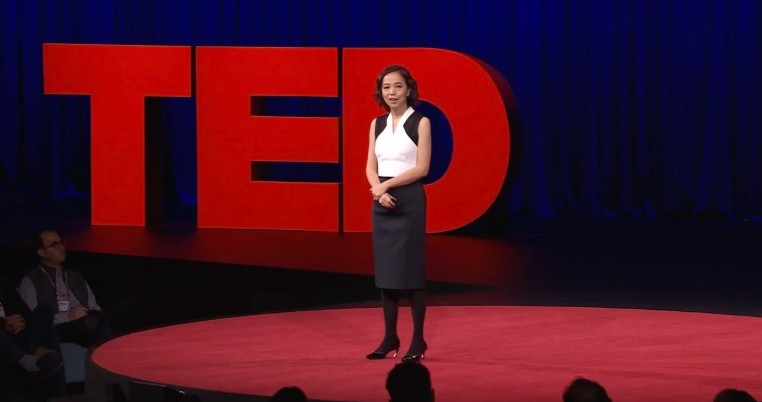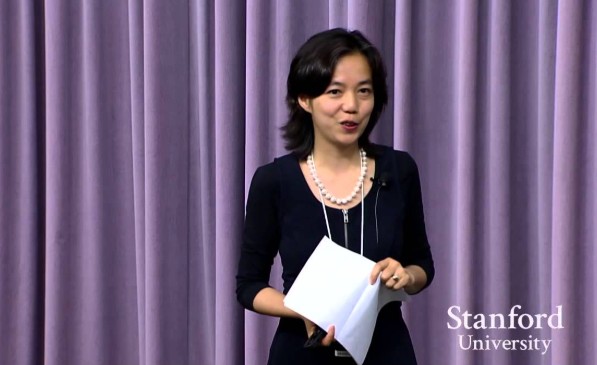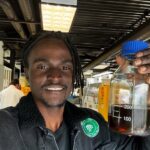Fei-Fei Li Age, Husband, Children, Family, Biography
Some Lesser Known Facts About Fei-Fei Li
-
When Fei-Fei Li was 12 years old, her father shifted from China to Parsippany, New Jersey.
-
She and her mother moved to the United States to join her father when she was 16 years old.
-
While studying at Parsippany High School in New Jersey, she worked at her family’s dry-cleaning shop on weekends.
-
At Princeton University, she wrote her senior thesis on a new computer model for a special kind of sound perception under electrical engineering professor Bradley Dickinson.
- During these years, she would often go home on weekends to help her family in the dry-cleaning business and also worked as a dishwasher to support her family’s income. She once spoke about her family business in the media. She said,
I ran that for seven years. Every weekend, from Friday to Sunday, I would be dry-cleaning. I would run the business because I speak English.”
- During her PhD, Li submitted her dissertation titled “Visual Recognition: Computational Models and Human Psychophysics.” Her PhD advisors were Pietro Perona and Christof Koch.
-
During her graduation, she received support from the National Science Foundation Graduate Research Fellowship and the Paul & Daisy Soros Fellowships for New Americans.
-
In 2005, Fei-Fei Li began working as an assistant professor in Electrical and Computer Engineering at the University of Illinois Urbana-Champaign. She served in the position till 2006.
-
From 2007 to 2009, she served as an assistant professor in the Computer Science Department at Princeton University.
-
In 2009, she joined Stanford University as an assistant professor.
-
In 2012, she became an associate professor and was promoted to full professor at Stanford University in 2018.
-
During her tenure at Stanford University, Li served as a director of the Artificial Intelligence Lab from 2013 to 2018. Her research focuses on computer vision, deep learning, and cognitive neuroscience.
-
Li and Dr John Etchemendy are the co-founders and co-directors of Stanford’s Human-Centred AI Institute, which works to advance AI research, education, policy, and practice to improve human life.
- In 2007, at Princeton University, Fei-Fei Li, along with Professor Kai Li, created ImageNet, a large visual database designed to improve object recognition in AI.
-
ImageNet involved labelling over 14 million images with help from Amazon Mechanical Turk workers.
- From 2010 to 2017, Li led a team that organised the ImageNet Large-Scale Visual Recognition Challenge (ILSVRC).
-
ImageNet provides a large set of labelled images to train machine learning models. It is a tool used in self-driving cars, facial recognition, and medical imaging.
-
Fei-Fei Li took a sabbatical from Stanford University between 2017 and 2018. During this time, she worked at Google Cloud as Chief Scientist for AI/ML and Vice President.
- At Google, she worked to make AI technology available to more people and businesses. Her team developed products like AutoML.
- In 2015, she and her former student, Olga Russakovsky, started a program at Stanford called SAILORS, a summer camp for 9th-grade girls to learn about AI. In 2017, it was renamed AI4ALL @Stanford.
-
In 2017, Fei-Fei Li, along with Melinda French Gates and Jensen Huang, co-founded AI4ALL, a nonprofit organisation that teaches AI to young people.
-
She then started working as the chairperson of AI4ALL
-
In 2017, Google received a Department of Defence contract called Project Maven to use AI for drone image analysis. Google assured its employees that the project was for non-offensive purposes only.
- In 2017, Parsippany High School in New Jersey added her to its hall of fame.
- That same year, she discussed her children’s screen time in the media. She said,
Our one-year-old doesn’t have any screen time. Our five-year-old has a Saturday night movie, and occasionally we show photos and videos on our cell phones, but we don’t like to encourage it. Eventually, they will be like us, which is basically 24/7 screen time.”
-
In 2018, Google decided not to renew its contract with Project Maven. Reportedly, some leaked emails revealed that Li supported the project privately but warned not to talk about its AI component due to concerns about military AI.
-
Li, during a media interview, once said that she supported AI that helps people and opposes using AI as a weapon.
-
In 2018, she left Google and returned to Stanford University.
- In 2018, AI4ALL launched five more summer programs at universities, such as Princeton, Carnegie Mellon, Boston University, UC Berkeley, and Simon Fraser University in Canada.
- In 2018, she published the book Architects of Intelligence: The Truth About AI from the People Building it, and in 2020, she released the book The Worlds I See: Curiosity, Exploration, and Discovery at the Dawn of AI.
- In 2020, she became a member of the National Academy of Engineering and the National Academy of Medicine.
- In May 2020, Fei-Fei Li was appointed as an independent member to Twitter’s board of directors.
- In 2021, she started working at the American Academy of Arts and Sciences.
- In October 2022, when Elon Musk bought Twitter, Li and eight others were removed from the board, and Musk became the only director.
- In August 2023, Li was appointed to the United Nations Scientific Advisory Board, which advises the UN on science, technology, ethics, governance, and sustainable development. It includes top scientists and aims to bring scientific knowledge into UN decisions.
- In January 2024, Fei-Fei Li took a partial academic leave to work on some business projects.
-
In 2024, during a media conference, she discussed the gap between private AI investments and funding for academic and government AI research.
-
She asked for public support to study the scientific uses and risks of AI.
-
In 2024, she helped establish a company focused on AI with ‘spatial intelligence,’ which means AI can understand and act in 3D environments.
-
The company then raised seed funding from investors and was valued at over $1 billion.
- After that, it was reported in the media that her company, World Labs, raised two funding rounds and was valued at over $1 billion.
- Reportedly, the company works on AI that combines visual perception with action, enabling robots to do daily tasks from verbal orders. Li said the goal is for AI to think and interact like humans with the physical world.
- In February 2025, at the Artificial Intelligence Action Summit in Paris, she said AI rules should be based on science, not ‘science fiction.’
- Fei-Fei Li has published over 300 research papers in top journals and conferences.
-
Her work has been featured in various noted publications, such as Nature, Proceedings of the National Academy of Sciences, Journal of Neuroscience, and major computer vision conferences.
- Her computer vision research contributed to Natural Scene Understanding, or storytelling with images.
- She often appears as a guest speaker at TED talks, a public speaking platform.
-
She has collaborated with Stanford Medicine professor Arnold Milstein to expand her research and use of AI in healthcare.
- Li teaches the Stanford course CS231n, which is about learning for computer vision.
-
She also teaches CS131, an introductory computer vision class.
- She likes reading science fiction, science, and European literature. Once, during a media conversation, she said that she was a scientist at heart since childhood. She said,
As a kid, I did a lot of reading in science, the universe, space, and the origin of life, so I was a scientist at heart, even in China. My life trajectory was gearing toward science very early on.”
- She is inspired by Benjamin Franklin, one of the Founding Fathers of the United States.

